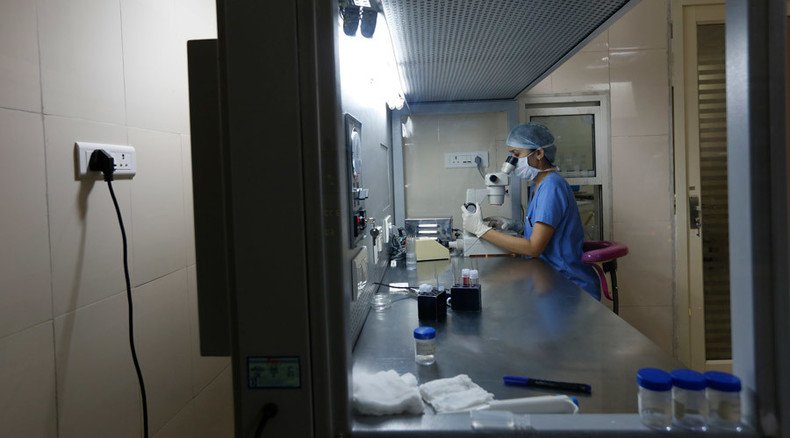All viruses that infect people or animals can be detected in a single new test

A new super-sensitive test called ViroCap can detect thousands of viruses that make people and animals sick – and doctors don’t even have to know what exactly they are looking for.
ViroCap can be used to detect such deadly viruses as Ebola or help fight the more mundane viruses like rotavirus, according to the technology’s developers at Washington University School of Medicine in St. Louis.
The laboratory tests we are all used to are called polymerase chain reaction (PCR) assays. The most expansive PCR assays can only screen up to 20 similar viruses at the same time while ViroCap looks for everything.
"With this test, you don't have to know what you're looking for," says Gregory Storch, professor of pediatrics at Washington University School of Medicine in St. Louis.
“It can efficiently detect viruses that are present at very low levels. We think the test will be especially useful in situations where a diagnosis remains elusive after standard testing or in situations in which the cause of a disease outbreak is unknown,” Storch goes on.
16yo teen invents world’s fastest #Ebola test, grabs #Google science prize http://t.co/ANuiwrq7m8pic.twitter.com/QcVycw4LzP
— RT (@RT_com) September 23, 2015The researchers gave their testing a try at St. Louis Children’s Hospital. There were two groups of patients in the experiment. The first one consisted of 14 children. Standard testing only detected viruses in 10 of them, while the new technology helped revealed viruses in every single child in the group.
Among the viruses the standard testing failed to detect were quite common ones - influenza B (causing flu), parechovirus (causing gastrointestinal and respiratory problems), herpes virus 1 and varicella-zoster virus (the cause of chickenpox).
The second group of tested patients was a group of eight children with unexplained fevers. While standard testing found 11 viruses in them, the new one discovered seven more.
When Storch and colleagues evaluated the new testing against standard testing, the number of viruses detected jumped from 21 to 32 in a 52% increase.
READ MORE Single drop of blood can determine every virus you've ever had, scientists say
The researchers worked with patients from St. Louis Children’s Hospital and in all cases the new test found viruses in the children that earlier testing had missed.
“The test is so sensitive that it also detects variant strains of viruses that are closely related genetically,” says Todd Wylie, an instructor of pediatrics and the paper’s corresponding author.
For example the study showed that while standard testing identified a virus as influenza A, responsible for seasonal flu, this new test stated that the virus was a particularly harsh subtype called H3N2, a strain that contributed to some 36,000 deaths in the United States last flu season.
Another co-author of the study, professor of pediatrics Kristine Wylie, adds that “it also may be possible to modify the test so that it could be used to detect pathogens other than viruses, including bacteria, fungi and other microbes.”
The technology will be made publicly available to scientists and clinicians worldwide however ViroCap will probably not be used with patients regularly any time soon as its accuracy needs to be verified in extensive clinical trials.












